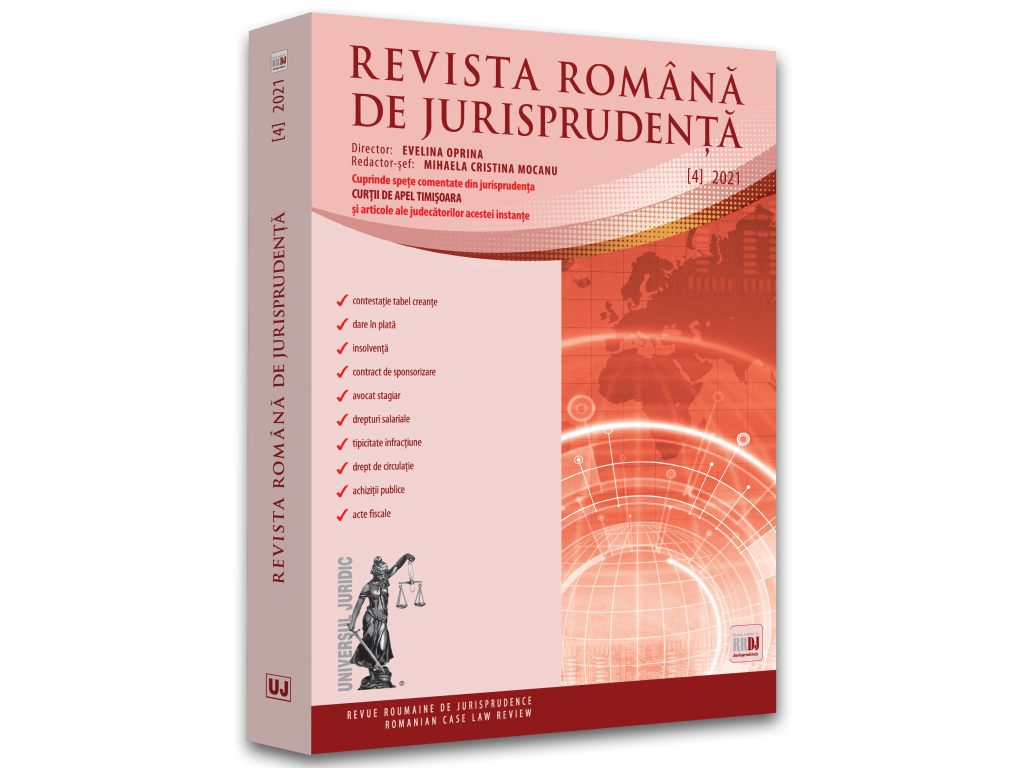Compensation paid to tenants for the apartment purchased under Law No 112/1995 and subsequently recovered by the State following the dissolution of the sale-purchase contract. Application of the provisions of the EDO Convention and the case law of the EDO
DREPT CIVIL ŞI DREPT PROCESUAL CIVIL
Abstract
By analyzing the plaintiffs' claim in the light of Article 1 of the First Additional Protocol to the European Convention on Human Rights according to which „Every natural or legal person is entitled to the peaceful enjoyment of his possessions. No one shall be deprived of his possessions except in the public interest and subject to the conditions provided for by law and by the general principles of international law. The preceding provisions shall not, however, in any way impair the right of a State to enforce such laws as it deems necessary to control the use of property in accordance with the general interest or to secure the payment of taxes or other contributions or penalties” The Court holds, in accordance with ECHR case-law, that a deprivation of possessions falling within the second rule can be justified only if it is shown in particular that it occurred for reasons of public interest and under the conditions laid down by law. In addition, any interference in the exercise of property rights must meet the proportionality test. In doing so, a fair balance must be maintained between the requirements of the general interest of the community and the imperatives of protecting fundamental human rights. The balance to be maintained will be ruined if such person bears a special and exorbitant burden. (Raicu v. Romania).
However, the European Court of Human Rights has ruled that under Article 1 of Protocol No. 1, the State has the right to expropriate property – including any rights to compensation enshrined in law – and to reduce, even greatly, the level of compensation by legislative means. What Article 1 of Protocol No 1 requires is that the amount of compensation awarded for a state-operated deprivation of property be „reasonably related” to the value of the property. A total lack of compensation can only be considered compatible with Article 1 of Protocol No. 1 in exceptional cases (Broniowski, cited above, § 186). Article 1 of Protocol No 1 does not guarantee a right to full compensation in all circumstances, and only partial compensation does not make the deprivation of property unlawful eo ipso in all cases. In particular, legitimate 'public benefit' objectives such as those pursuing economic reform or social justice measures may argue for less than full market value reimbursement. (Maria Atanasiu and Others v. Romania, Judgment of 12 October 2010).








